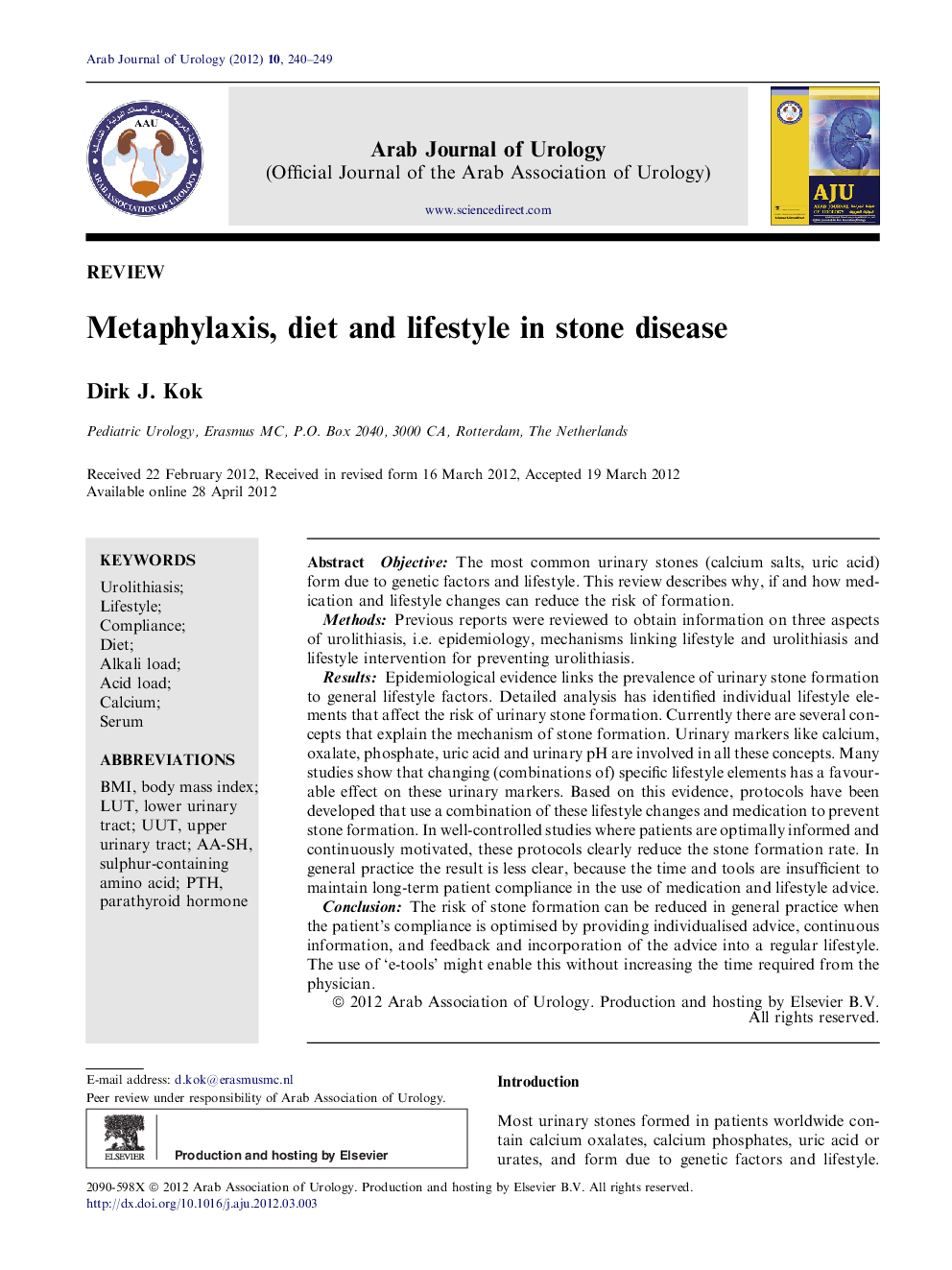| Article ID | Journal | Published Year | Pages | File Type |
|---|---|---|---|---|
| 4268152 | Arab Journal of Urology | 2012 | 10 Pages |
ObjectiveThe most common urinary stones (calcium salts, uric acid) form due to genetic factors and lifestyle. This review describes why, if and how medication and lifestyle changes can reduce the risk of formation.MethodsPrevious reports were reviewed to obtain information on three aspects of urolithiasis, i.e. epidemiology, mechanisms linking lifestyle and urolithiasis and lifestyle intervention for preventing urolithiasis.ResultsEpidemiological evidence links the prevalence of urinary stone formation to general lifestyle factors. Detailed analysis has identified individual lifestyle elements that affect the risk of urinary stone formation. Currently there are several concepts that explain the mechanism of stone formation. Urinary markers like calcium, oxalate, phosphate, uric acid and urinary pH are involved in all these concepts. Many studies show that changing (combinations of) specific lifestyle elements has a favourable effect on these urinary markers. Based on this evidence, protocols have been developed that use a combination of these lifestyle changes and medication to prevent stone formation. In well-controlled studies where patients are optimally informed and continuously motivated, these protocols clearly reduce the stone formation rate. In general practice the result is less clear, because the time and tools are insufficient to maintain long-term patient compliance in the use of medication and lifestyle advice.ConclusionThe risk of stone formation can be reduced in general practice when the patient’s compliance is optimised by providing individualised advice, continuous information, and feedback and incorporation of the advice into a regular lifestyle. The use of ‘e-tools’ might enable this without increasing the time required from the physician.
